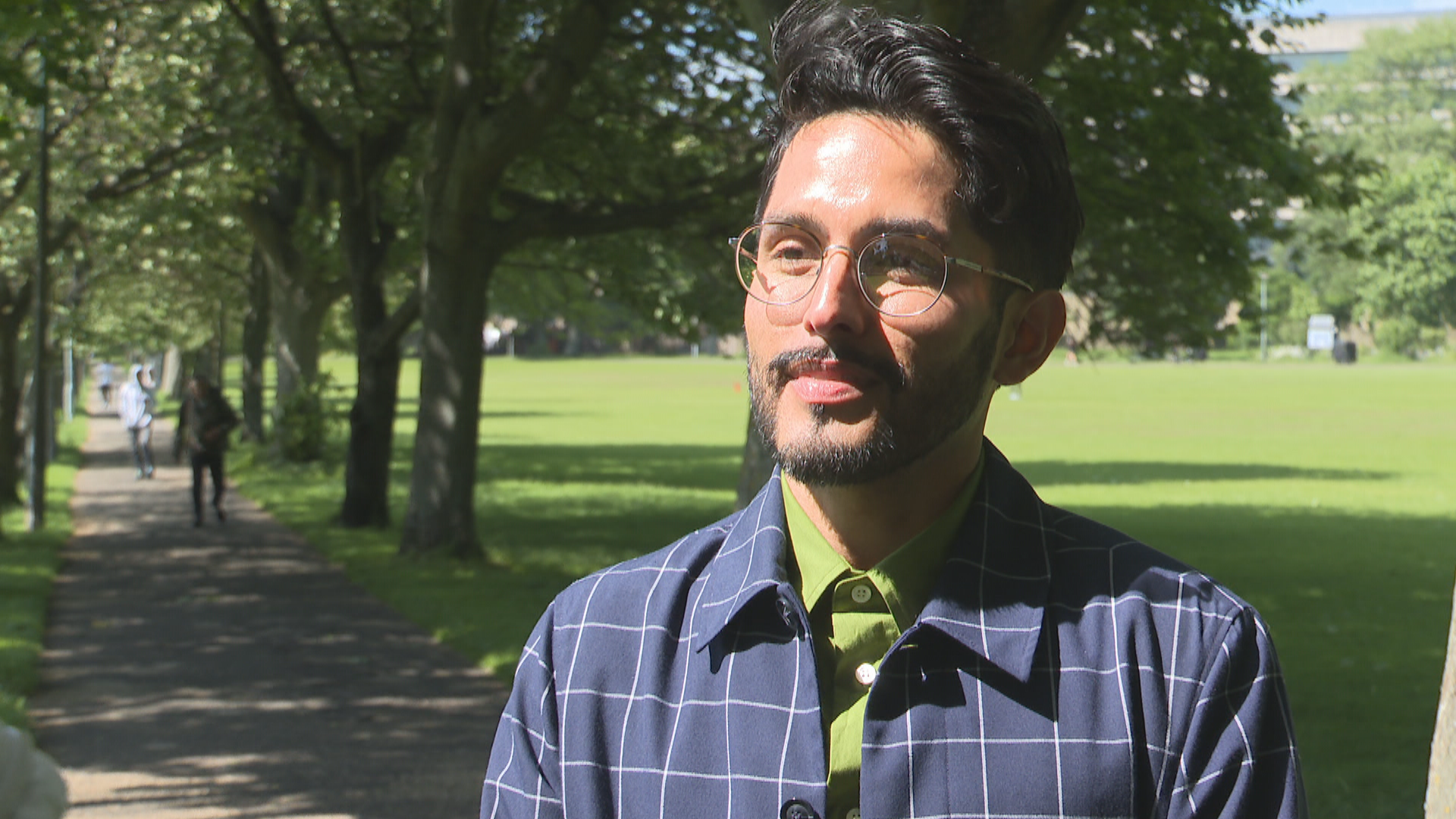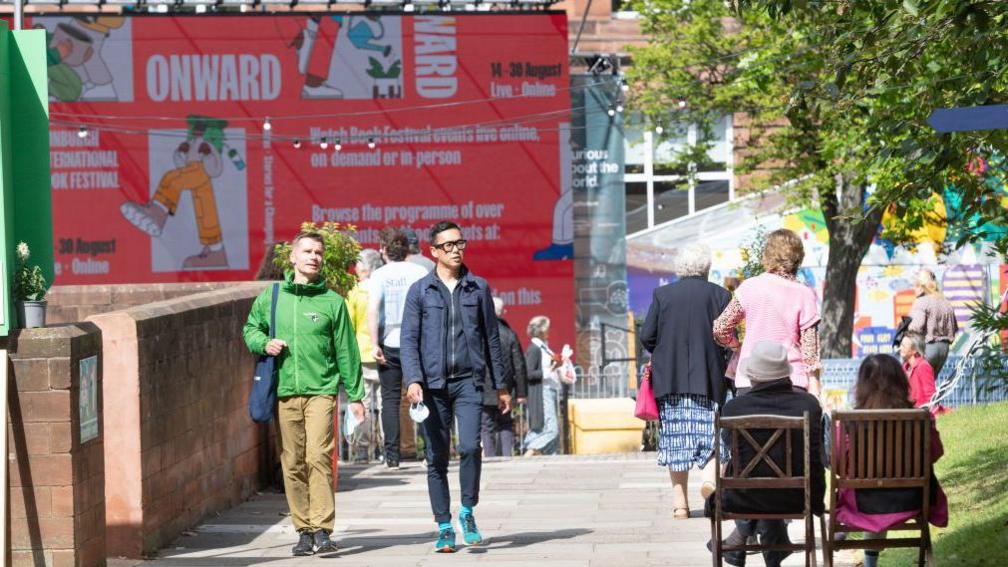Borders Book Festival to end Baillie Gifford sponsorship

The Borders Book Festival is held in Melrose every year
- Published
The directors of the Borders Book Festival have announced it will end its sponsorship deal with Baillie Gifford after this year's event.
It comes after Edinburgh International Book Festival ended its deal with the investment company following pressure from climate change protesters.
The Borders Book Festival said it had taken the decision with "great regret" after eight years working together.
The event - staged in Melrose - runs from 13 to 16 June this year.
Climate change protesters have criticised other book festivals for their links to the company which they claim has links to fossil fuel firms and Israel.
The Edinburgh book festival and the Hay festival in Wales have recently ended sponsorship deals with the company.
Baillie Gifford has defended its ethical record, saying it is not a significant fossil fuel investor and described claims that it had significant amounts of money in the occupied Palestinian territories as "offensively misleading".
The Borders Book Festival said it had made its decision following protests around the sponsorship deal at its own and other festivals.
It said: "We took this decision with great regret because we have enjoyed eight happy and productive years working together to make our festival better, more accessible and in particular more attractive to children and families.
"Without the support of Baillie Gifford we would not have been able to mount such a vibrant and varied children’s festival - where adults go free - and do all that we do with schools in the Borders.
"Baillie Gifford’s support has enabled us to put free books into the hands of thousands of children, and that aspect of their support will be sorely missed."
It thanked the company for its "solid and passionate support" not only for its festival but for others around the country.

Andres Ordorica welcomed the decisions being made to drop Baillie Gifford as a sponsor
Andres Ordorica, of Fossil Free Books, welcomed the announcement and defended the group's decision to target book festivals.
He said the group involved about 100 book workers from a range of sections of the industry.
"The aim has always been - and will continue to be - to call upon Baillie Gifford to divest," he said.
"We appreciate them listening to writers and book workers," he said.
"The aim has never been to target festivals - it is about using these festivals' very unique relationship with this investor."
He said he appreciated that their tactics might not be welcome but said there was a long history of such protests being used to draw attention to campaigns.
He said book festivals did not have to rely on corporate sponsorship and hoped it could lead to the pursuit of better public funding.
'Ethical standards'
The Wigtown Book Festival, which will be held in neighbouring Dumfries and Galloway later in the year, also receives support from Baillie Gifford.
Director Adrian Turpin said the festival was in “dialogue” with the company over their relationship.
However, he said he was confident that sponsorship the festival received conformed to "transparent ethical standards".
He said: "It is not our role to make a case for them, but we encourage everyone to look at the facts and the misrepresentations that have been made, both regarding their climate-related and Israel-related investments.
"They have been exemplary supporters."
He added that the situation was a "disaster" for literature organisations across Scotland.
'Educate yourselves'
Dozens of Scotland’s top writers including Val McDermid, Liz Lochead, Jackie Kay, Chris Brookmyre, Andrew O’Hagan and Alexander McCall Smith last week criticised the impact of protests over the sponsorship on the Edinburgh International Book Festival.
In an open letter, external to the Scotsman newspaper they said as citizens they felt it was right to campaign for fossil fuel divestment and a ceasefire in Gaza, but said that tactics that risked the closure of book festivals were "ill-thought out".
The Edinburgh International Book Festival has meanwhile launched its programme for this year, featuring authors like Margaret Atwood, Salman Rushdie, Lorraine Kelly and Richard Osmond.
Director Jenny Niven said she believed the festival could be a forum to discuss the "really serious things going on in society".
"We have Israeli and Palestinian authors on stage together, we have got conflict resolution programmes, we have got people looking at green tech and how to finance the green economy," she said.
"Come and educate yourselves and share your views and think about why does this matter to you and get involved in the conversation.
"Everybody's voice needs to be heard in that."
Related topics
- Published30 May 2024
